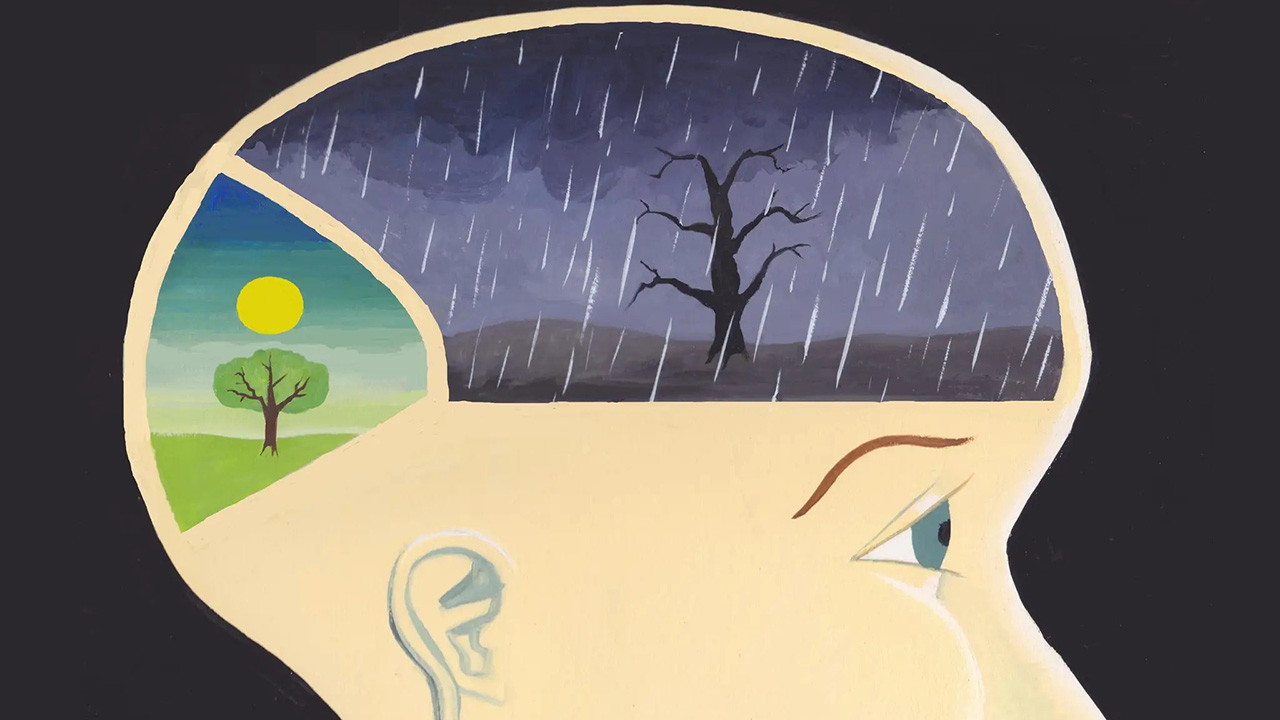Recently, I stumbled upon a fabulous Danish audiobook and eBook by Saxo, (titled “Lev Mere Tænk Mindre”. It translates to “Live More, Think Less”) , authored by Pia Callesen. The book introduces the concept of metacognitive therapy, which aids people experiencing stress and depression. I’m not suggesting that language learners face depression as a whole, but I have to say that social anxiety disorder is one symptom that many people encounter.

There are various kinds of negative emotions that one can develop, and social anxiety disorder is just one of many. In her book, Callesen explains how and why people develop these issues and how to overcome them. The book highlights that we are constantly exposed to a multitude of thoughts every day, with the average person having approximately 70,000 thoughts per day. While a portion of these thoughts may be negative, it’s not that individuals who struggle with depression or anxiety have more negative thoughts than others, but they tend to dwell and spend too much time focusing on the negative ones.
Individuals tend to ruminate and cogitate, excessively dwelling on negative thoughts. As explained in the book, which also has an English language version, the therapy employed is based on metacognition developed at the University of Manchester in England. What the author explains is that there are three levels of thinking that play a role in our mental processes.
The lowest level of our thinking comprises the numerous thoughts that we are constantly bombarded with, which may include doubts and negative thoughts – tens of thousands of them. The next level is how we manage these thoughts. Some individuals tend to invest excessive time into exploring these negative thoughts, pondering over questions like “How did I do?” or “Do they like me?” or “Will I be fired?” or even concerns related to language learning anxieties like “Is my English pronunciation bad?”
We often fear being judged by others for our language abilities. These negative thoughts have the potential to consume us, leading to unhappiness and distress. However, as discussed in the book, we have the option of either dwelling on these thoughts or choosing to ignore them. The author suggests that ignoring these negative thoughts, which she refers to as trigger thoughts, is the key to developing a strategy for managing anxiety and unhappiness.

The foundation of effectively managing our thoughts lies in having a personal belief system that determines our strategy. If we believe that constantly dwelling on negative thoughts is beneficial, then that is what we will do. Conversely, if we believe that the negative impact of such thoughts is out of our control, then we may choose to adopt a different approach. If we hold the belief that we have control over our thoughts, then we can choose to ignore them or only address them at a designated time. We can redirect our focus to other areas and avoid dwelling on negative thoughts, which can lead to increased happiness.
When learning a language, it’s important to focus on the language itself, whether it’s through listening, reading, or speaking with others. Our focus should be on the external experience, rather than inwardly questioning our abilities or fixating on mistakes. By adopting a mindful approach that emphasizes the enjoyment of the learning process in an outward-facing manner, we can cultivate a positive and successful language learning experience.
Indulging in doubts and negative thoughts will only hinder our language learning experience. Rather than allowing ourselves to be consumed by these limiting beliefs, it’s important to maintain a positive mindset and outlook. In doing so, we can hindering our language learning progress and reach our goals with greater ease. It’s helpful to keep this in mind in all aspects of life, whether reading about language learning or any other subject.
It’s essential to have a strong belief system when it comes to dealing with negative thoughts that inevitably arise during language learning. This requires discipline and a deep understanding of how we can cultivate a positive mindset. Our beliefs shape how we approach and respond to challenges and setbacks. Therefore, by adopting a positive and growth-oriented belief system, we can more effectively navigate the ups and downs of language learning. It’s crucial to foster this kind of mindset to achieve success in language learning and in all aspects of life.
A strong belief system that allows for mistakes and acknowledges their inevitability is crucial in maintaining a positive attitude towards language learning. It’s important to avoid dwelling on mistakes and instead focus on moving forward while enjoying the process and celebrating small victories. Negative thoughts are bound to arise, but by embracing a belief system that prioritizes growth and progress, we can approach these moments with resilience and determination. Remembering that the journey is as important as the destination can give us the motivation to continue pushing forward and improving our language skills.
It’s common for negative thoughts to arise in any pursuit, including language learning. However, it’s important to acknowledge them without allowing them to have power over our mindset.
When confronted with a setback you have two choices of action: you can bury your head in the sand like the ostrich and hope the problem will pass by, or you can stand tall and face the problem head on.
“We have one freedom inside us that nobody can take away, the freedom of reaction or attitude in any given circumstance.” (Viktor Frankl, the psychologist & concentration camp survivor.) Our reaction to a setback will determine if we are going to stay with our heads buried in the sand or look up and do something about it.
When storms of life pour down on you, it’s what happens within you that will determine what happens to you. You have Mr Positive and Mr Negative doing constant battle in your head. Guess who wins? The one we feed the most!
If your head is in the sand you can only see the dark and Mr Negative will thrive. To see the light, you must look up. “When you are knocked down, be sure to land on your back, because if you can look up, you can get up.” (Nelson Mandela)
If you are an ostrich and have never faced a setback, you need to learn these facts about solving problems first:
* Face it! Confront the problem and get the picture clear.
* Rake it! Work through your denial, aggression or depression around the problem.
* Make it! Look up, stand up and take action.
This is important because just as the sun hardens mud and softens wax, trials can either break us or make us.




